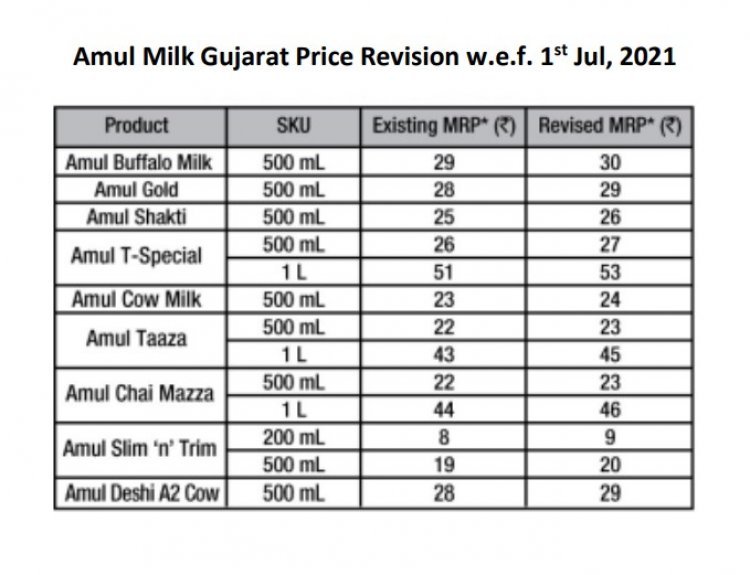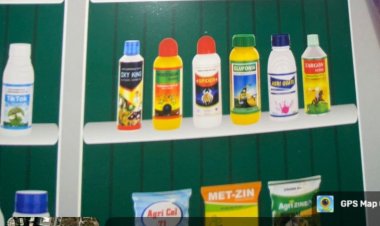Milk prices go up by Rs 2 per litre; increasing costs for the dairy and the farmers the main reason
Amul has decided to revise the milk prices by Rs 2 per litre. The prices of all milk variants have been revised and the revised prices will be effective from Thursday July 1, 2021. The main reason for this rise in prices is the increase in several costs over the past few months. On account of this, while the production cost has gone up for the farmers, the packaging, logistics and energy costs, too, have massively increased.

The Gujarat Cooperative Milk Marketing Federation (GCMMF), the marketer of milk and milk products under the brand name of Amul, has decided to revise the milk prices by Rs 2 per litre. The prices of all milk variants have been revised and the revised prices will be effective from Thursday July 1, 2021. This has led to the maximum retail price (MRP) of fresh milk going up to Rs 60 per litre.
Dairy companies were under pressure over the last several months to increase milk prices due to an increase in costs. That is why other dairy companies have also increased their milk prices along with Amul. Industry sources told Amul that most of the companies had in fact withheld the increase in prices only to wait for Amul, the largest dairy brand in the country, to do so. The chart given above shows the new milk prices post increase.
In response to a query from RuralVoice regarding the hike in milk prices, RS Sodhi, Managing Director (MD), Amul, said, “This increase has been brought about after a year and seven months. Last time, milk prices had been increased in December 2019.” Starting from the dairy farmers, there has been an increase in cost at every level — be it milk processing, packaging or logistics. Says Sodhi, “The packaging cost has gone up by 35 per cent. The logistics cost has gone up by 30 per cent. The energy cost has also gone up by 30 per cent. Given this situation, it has become next to impossible for us to sustain without a price hike. Despite this, Amul has increased milk prices by a mere 4 per cent. The cost is increasing for the farmers as well. Amul has increased the procurement price for the farmers by 6 per cent within a year. Why this is necessary is because inflation is not simply an urban phenomenon; the farmer, too, has to bear the brunt of inflation. It is for him, too, that food inflation has gone up. His milk production cost has gone up continuously.”
If we take into account the fact that the wholesale inflation rate (WPI) has gone into two digits and reached a record high and the Consumer Price Index (CPI) inflation has crossed 6 per cent, it is clear that prices of several products are bound to increase. And the recent increase in milk prices is a result of this. The production cost has gone up for the farmers. Besides, processing, transportation, marketing and packaging costs have gone up. Which means the 60 per cent-plus inflation in petroleum products over the last one year has now begun to impact the consumers directly. Several other industries, too, are increasing the prices of their products.
In a press release issued by it, Amul says that it has also granted relief to the farmers burdened by the increasing cost of production. It has raised the procurement price for them by up to 6 per cent compared to last year. It has increased farmers’ prices in the range of Rs 45 to Rs 50 per kg fat. The revenue generated from the price increase will directly benefit the farmers as Amul passes on almost 80 paise of every rupee paid by consumers for milk and milk products to the milk producers.
During the lockdown imposed in the first wave of the Covid-19 pandemic, the farmers had to incur massive losses in the case of milk prices. Besides, the sales of dairy products had gone down drastically. Given this situation, most of the dairy companies, barring Amul and some other cooperatives, had drastically reduced the procurement price. Again, only recently, the private dairy companies in Maharashtra had significantly reduced the procurement price — the price paid to farmers was reduced from Rs 28 per litre to Rs 18-20 per litre. But Amul, being itself a farmers’ institution, is not in a position to reduce the milk prices for the farmers. Well, the only solution to increasing costs then is an increase in retail prices — which is what Amul has exactly done.
Last year, private dairy companies and the cooperatives of Uttar Pradesh and some other states had reduced their procurement prices. This led to farmers reducing their investment in milch cattle, which, in turn, has begun to tell upon milk production. Moreover, going by the way costs have increased for the farmers and the dairy industry, an increase in prices was inevitable.



 Join the RuralVoice whatsapp group
Join the RuralVoice whatsapp group









































